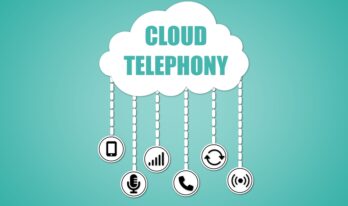Amidst the technologically advanced era, effective lead generation is still a longing desire of many B2B companies. The chief reasons for this can be diverse, such as failure to identify the target audience, inability to understand the target audience's requirements, not choosing an appropriate marketing strategy, and others.
Lead scoring, in this regard, can assist marketers extensively with a comprehensive ranking method. In this blog, we shall try to understand the tactic better alongside its importance, example, and a few tools for the same.
What is Lead Scoring?
Lead scoring is a method to evaluate the readiness of the prospects to make buying decisions based on their different behavioral and psychographic attributes. Here, intent data is leveraged to identify the leads and assess their information.
The data set includes behavioral information about the prospects, their past purchasing details, and their levels of engagement with the product or service of a company. Prospects are ranked according to their traits and actions.
There are several grounds for scoring leads, such as clicks, searches, purchase history, and related observations. For lead scoring example, when prospects search for similar services or products, they are provided with 30 points. When they have a common purchase history, they are provided with 30 more points. They further get ten points for active participation in relevant social media surveys. However, if they have failed attempts to invest anywhere, they get negative points.
Following this procedure, marketers chronologically rank their leads as per the scores given to them. Ultimately, the prospects with higher numbers are considered hot leads with enhanced chances of conversion. On the other hand, prospects with lower numbers are not prioritized anymore.
Why is Lead Scoring Important?
The lead ranking technique combines historical data with contemporary information to identify the qualifying leads for a business. Recognizing the appropriate audience is one of the chief tasks of lead generation companies. Nevertheless, organizations often end up targeting the wrong audience. As a result, they generate limited leads, and the conversion rate stays low as well. It additionally wastes time and effort.
With prospect ranking, marketers not only identify the hot leads but also assist in nurturing them by addressing their actual needs assessed in the scoring process. It is an affordable tactic that reflects strong results by saving valuable time and elevating ROI.
B2B Lead scoring assists in shortlisting the qualifying leads for better opportunities to boost conversion rates and sales. It further contributes to accelerating organizational productivity and efficiency. Following successful marketing endeavors with this tactic, companies can strategize their future business approaches, eliminating the risks of loss.
Top Lead Scoring Tools:
HubSpot: It integrates predictive lead ranking together with several other marketing methods. The tool offers its services at $800 per month.
Salesforce: It is an AI-powered marketing tool that offers standard lead ranking capabilities. The software comes with a free trial and an entry-level payment of $25 per month.
Zoho CRM: An advanced customer relationship management tool with high-quality lead-scoring abilities. Its paid version starts from $22 per month.
Breadcrumbs: It is a customizable lead ranking tool to analyze different attributes of the leads effectively. The application has a free version, and the paid version starts from $1,599 per month.
Mailchimp: An automation-enabled marketing platform that allows marketers to do thorough lead scoring. It comes with a monthly subscription fee of $9.20 and a free version.
Wrapping Up!
B2B lead generation can be complex at times, but adopting the right strategy can assist in this process immensely. Lead scoring is one such method that can help marketers generate quality leads and nurture them efficiently. We pioneer in delivering value-added content to our esteemed readers regularly. Check out our blog section to learn about more operational marketing techniques.
Recommended For You:
What is Lead Nurturing? Key Ways to Nurture Leads & Customers





